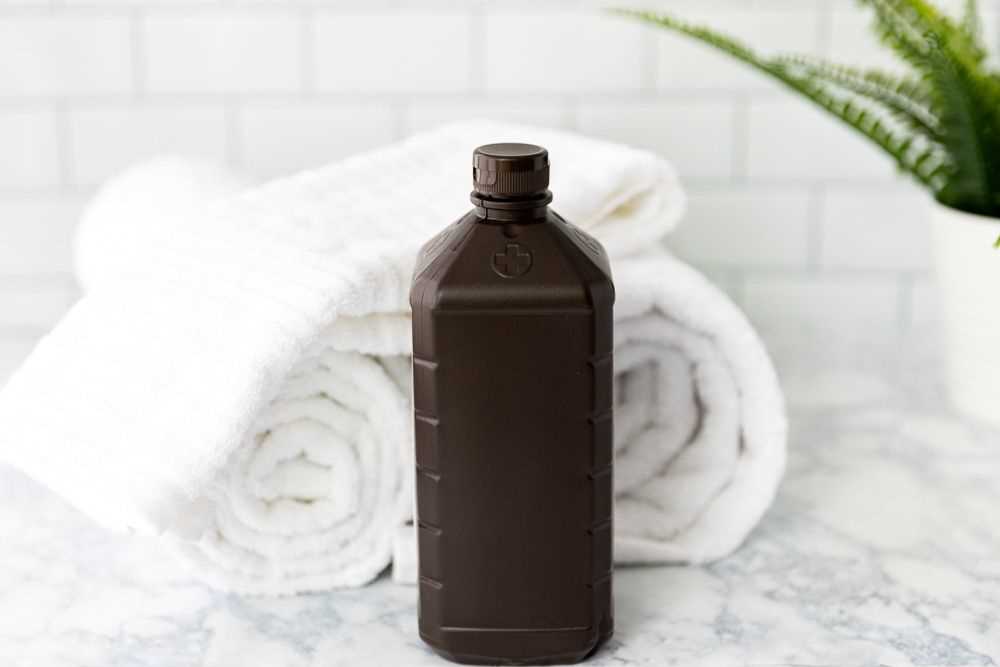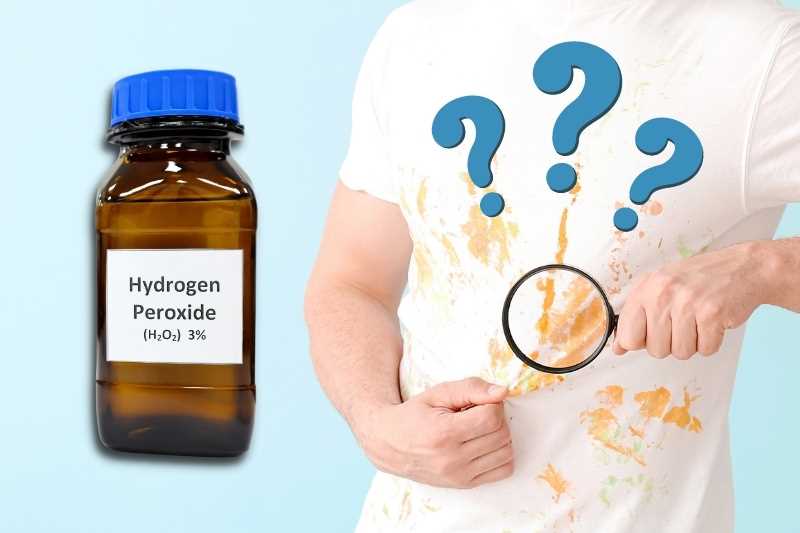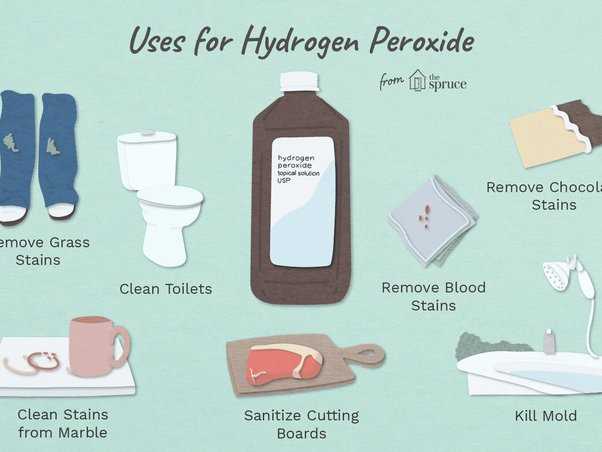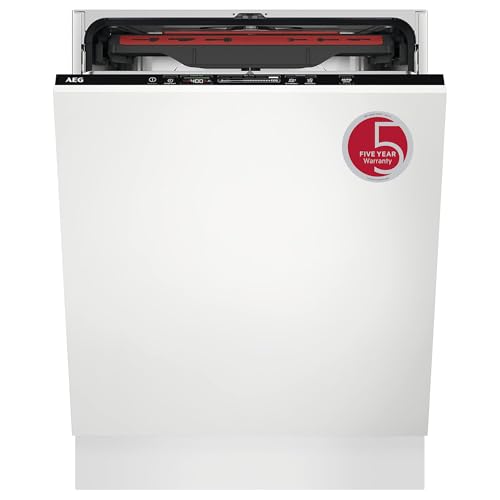


Hydrogen peroxide is a common household staple that is often used as a disinfectant and bleaching agent. It is widely available and relatively inexpensive, making it a popular choice for many cleaning tasks. But is hydrogen peroxide safe to use on clothes?
The answer to this question depends on the fabric and the concentration of hydrogen peroxide being used. Hydrogen peroxide can be safe to use on some fabrics and can help remove tough stains, such as blood or sweat. However, it can also cause damage to certain types of fabrics, such as silk or wool.
When using hydrogen peroxide on clothes, it is important to dilute it with water to reduce its strength. A general rule of thumb is to mix one part hydrogen peroxide with three parts water. This will help prevent the hydrogen peroxide from bleaching or damaging the fabric.
Important precaution: It is always recommended to test a small, inconspicuous area of the fabric before using hydrogen peroxide on the entire garment. This will help ensure that the fabric is not damaged or discolored.
In summary, hydrogen peroxide can be a useful tool for removing stains and sanitizing clothes, but caution should be exercised when using it. Diluting it with water and testing a small area of the fabric are essential steps to prevent any damage. Always follow the instructions on the hydrogen peroxide bottle for best results.
Hydrogen Peroxide and Clothes
Hydrogen peroxide is commonly used as a household cleaning agent, and it can be an effective stain remover for clothes. However, it is important to use it properly to ensure its safety and effectiveness.
1. Test on an inconspicuous area
Before applying hydrogen peroxide to a stain on your clothes, it is always a good idea to test it on an inconspicuous area first. This will help you determine if the hydrogen peroxide will cause any damage or discoloration to the fabric.
2. Dilute hydrogen peroxide
Hydrogen peroxide is typically sold in a 3% solution, which is safe for most fabrics. However, for delicate fabrics or colors that may be prone to fading, it is recommended to dilute the hydrogen peroxide with water. A 50/50 solution of hydrogen peroxide and water should be sufficient for most stains.
3. Apply directly to the stain
To use hydrogen peroxide on a stain, simply pour a small amount of the solution directly on the affected area. Gently rub the fabric together to work the hydrogen peroxide into the stain. Allow it to sit for a few minutes before rinsing with cold water.
4. Wash as usual
After treating the stain with hydrogen peroxide, you can wash the garment as you normally would. Be sure to follow the care instructions on the clothing label. If the stain is still visible after washing, you may need to repeat the hydrogen peroxide treatment or try a different stain removal method.
5. Precautions
- Hydrogen peroxide can bleach colored fabrics, so it is important to test it first and be cautious when using it on colored garments.
- Avoid using hydrogen peroxide on silk, wool, or other delicate fabrics that may be damaged by its bleaching properties.
- It is not recommended to mix hydrogen peroxide with chlorine bleach or other cleaning products, as this can create toxic fumes.
- Always store hydrogen peroxide in a cool, dark place, as exposure to light and heat can break it down and reduce its effectiveness.
By following these guidelines, you can safely use hydrogen peroxide to remove stains from your clothes. Remember to always test it first and take appropriate precautions based on the fabric and stain type.
What is Hydrogen Peroxide?
Hydrogen peroxide is a chemical compound commonly used as a cleaning agent and disinfectant. Its chemical formula is H2O2, which means it consists of two hydrogen atoms and two oxygen atoms.
Hydrogen peroxide is a pale blue liquid that is slightly more viscous than water. It has a variety of uses in different industries, including as a bleach, an antiseptic, a wound cleaner, and a hair bleach. In addition, it can be used as a household cleaner and stain remover for fabrics.
As a cleaning agent, hydrogen peroxide works by breaking down into water and oxygen when it comes into contact with organic materials. The release of oxygen creates a foaming action that helps to remove stains and remove dirt and debris from surfaces.
Hydrogen peroxide is generally safe to use on clothes, but it is important to follow the instructions and dilute it properly before applying it to fabric. It is also recommended to do a patch test on a small, inconspicuous area of the garment to check for any adverse reactions.
While hydrogen peroxide can be effective in removing stains, it is not suitable for all types of fabrics. It is best to consult the care label of the garment to determine if hydrogen peroxide is safe to use. Some delicate fabrics, such as silk or wool, may be damaged or discolored by hydrogen peroxide.
Overall, hydrogen peroxide is a versatile and effective cleaning agent that can be used safely on clothes when used properly. However, it is always advisable to exercise caution and follow the instructions to ensure the best results and to avoid any potential damage to the fabric.
Benefits of Using Hydrogen Peroxide on Clothes
- Stain Removal: Hydrogen peroxide is a powerful bleaching agent that can effectively remove tough stains from clothes. It can effectively treat stains caused by blood, wine, sweat, and other common substances.
- Brightening: Hydrogen peroxide can give your clothes a brighter and whiter appearance. It helps to remove dullness and revive the colors of your garments, making them look fresh and vibrant.
- Odor Elimination: Hydrogen peroxide has natural oxidizing properties that can help eliminate unpleasant odors from clothes. It can be especially useful for removing stubborn smells from garments that have been stored for a long time or have absorbed strong odors.
- Gentle on Fabrics: Hydrogen peroxide is generally safe to use on most types of fabrics, including cotton, polyester, and blends. It is less harsh compared to chlorine bleach and does not damage or weaken the fibers of the clothing.
- Cost-effective: Hydrogen peroxide is an affordable and readily available cleaning solution. It can be an economical alternative to expensive stain removers and laundry detergents.
- Eco-friendly: Unlike many commercial laundry products that contain harmful chemicals, hydrogen peroxide is a more environmentally friendly option. It breaks down into water and oxygen, leaving no harmful residues behind.
Overall, hydrogen peroxide can be a useful and versatile addition to your laundry routine. It can help keep your clothes clean, fresh, and looking their best.
Potential Risks and Precautions

While hydrogen peroxide can be an effective stain remover for clothes, it is important to be aware of the potential risks and take proper precautions when using it:
- Skin Irritation: Hydrogen peroxide is a strong oxidizer and can cause skin irritation, especially if it comes in contact with sensitive or damaged skin. It is recommended to wear gloves when handling hydrogen peroxide to protect your skin.
- Eye Irritation: Contact with hydrogen peroxide can cause irritation and burning sensation in the eyes. If it gets into the eyes, rinse them thoroughly with clean water for several minutes and seek medical attention if the irritation persists.
- Bleaching Effect: Hydrogen peroxide has bleaching properties and can potentially remove or lighten the color of fabrics. It is important to test a small, inconspicuous area of the garment before applying hydrogen peroxide to ensure that it does not cause any unwanted color fading or damage.
- Caution with Delicate Fabrics: Delicate fabrics, such as silk or wool, may be more susceptible to damage from hydrogen peroxide. It is advisable to avoid using hydrogen peroxide on these types of fabrics or to consult a professional cleaner before attempting to remove stains.
- Proper Dilution: It is important to dilute hydrogen peroxide before using it on clothes. Using undiluted hydrogen peroxide can be too strong and may cause damage to the fabric. Follow the instructions on the bottle for recommended dilution ratios.
- Ventilation: When using hydrogen peroxide, it is recommended to work in a well-ventilated area to avoid inhaling fumes. If working indoors, open windows or use a fan to improve air circulation.
- Storage: Store hydrogen peroxide in its original bottle and keep it tightly closed when not in use. Keep it away from direct sunlight and extreme temperatures.
By following these precautions, you can safely and effectively use hydrogen peroxide to remove stains from your clothes.
Alternative Stain Removal Methods
While hydrogen peroxide can be effective for removing stains on clothes, there are also alternative methods you can try. These methods may work well for certain types of stains or fabric, so it’s good to have a few options on hand.
1. Vinegar
Vinegar is a versatile and natural stain remover that can be used on a variety of fabrics. It works well on stains like coffee, tea, and sweat. To use vinegar, mix equal parts white vinegar and water and apply it to the stain. Let it sit for a few minutes before rinsing with cold water and washing as usual.
2. Baking Soda
Baking soda is another handy household item that can help remove stains. It works well on grease and oil stains. Simply make a paste by mixing baking soda with water and apply it to the stain. Allow it to sit for a few minutes before rinsing off and washing as usual.
3. Lemon Juice
Lemon juice is a natural bleaching agent that can help remove stains, especially on white or light-colored fabrics. Squeeze fresh lemon juice onto the stain, let it sit for a few minutes, and then rinse with cold water. It’s important to avoid exposing the garment to sunlight while the lemon juice is still on it, as this can cause the fabric to yellow.
4. Salt
Salt can be used to remove stains and prevent color bleeding. For fresh stains, cover the area with salt and let it absorb the liquid. Then, scrape off the salt and rinse with cold water. For stubborn stains, make a paste with salt and water, apply it to the stain, and let it sit before rinsing and washing as usual.
5. Dish Soap

Dish soap can be effective for removing stains, especially those caused by food or grease. Apply a small amount of dish soap directly to the stain and gently rub it in. Let it sit for a few minutes before rinsing with cold water and laundering as usual.
Conclusion

While hydrogen peroxide is a popular stain remover, there are several alternative methods that can be just as effective. It’s important to read and follow the care instructions on your clothing and test any stain removal method on a small, inconspicuous area before applying it to the entire stain. With patience and a little experimentation, you can find the stain removal method that works best for your specific stain and fabric.
FAQ
Is hydrogen peroxide safe to use on colored clothes?
Yes, hydrogen peroxide can be used on colored clothes. However, it is always recommended to test it on a small, inconspicuous area of the fabric first to make sure it doesn’t cause any color fading or damage.
Can hydrogen peroxide remove tough stains from clothes?
Yes, hydrogen peroxide is known for its stain-removing properties. It can effectively remove tough stains like blood, wine, and sweat when used properly. However, it is important to follow the instructions and use it in the right concentration for best results.
Is it safe to mix hydrogen peroxide with other cleaning products?
No, it is not recommended to mix hydrogen peroxide with other cleaning products, especially chlorine bleach. Combining these substances can create toxic fumes and may be hazardous. It is always best to use hydrogen peroxide on its own or follow the specific instructions on the product label.
Can hydrogen peroxide damage delicate fabrics?
Hydrogen peroxide can be too harsh for delicate fabrics like silk or wool. It may cause color fading, bleaching, or damage to the fibers. It is advisable to avoid using hydrogen peroxide on delicate fabrics and opt for gentler stain removal methods.












